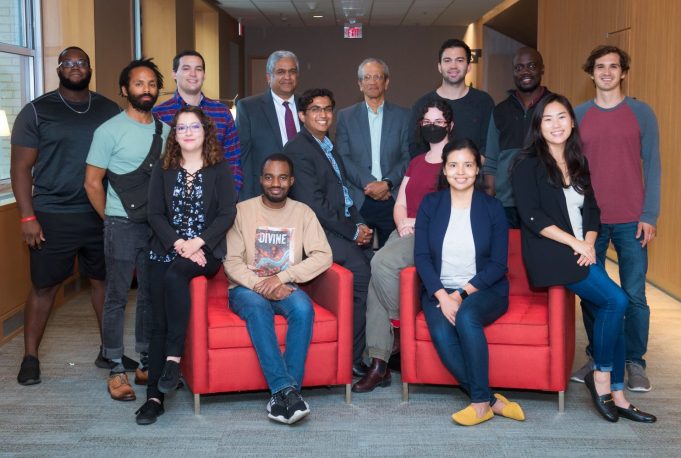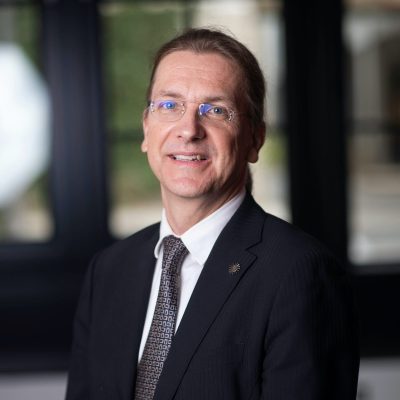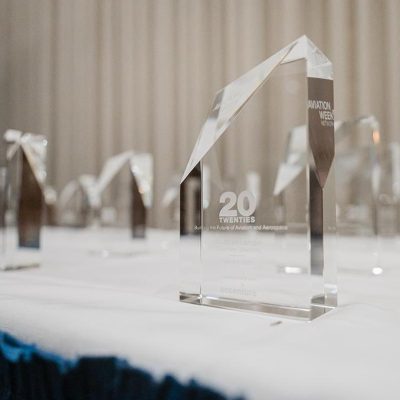
School of Engineering unveils MIT Postdoctoral Fellowship Program for Engineering Excellence
In July 2022, the MIT School of Engineering welcomed its first class of scholars selected for the Postdoctoral Fellowship Program for Engineering Excellence. The idea for the fellowship grew from conversations taking place within the school’s Diversity, Equity and Inclusion (DEI) Committee — established in 2020 — that identified a need to diversify the pool of postdocs employed within the school. The program seeks to discover and develop the next generation of faculty leaders to help guide the school toward a more diverse and inclusive culture.
“We are excited to offer this new fellowship opportunity,” says Anantha Chandrakasan, dean of the School of Engineering. “I look forward to the positive impact these postdoctoral fellows will bring to their work and research while also helping the School of Engineering continue our growth as a more welcoming and diverse community for all.”
The program offers annual stipends for postdocs to pursue research and educational efforts that widen the scope and breadth of the school’s current work, while maintaining its commitment to excellence in engineering. It is partially inspired by MIT’s Dr. Martin Luther King Jr. Visiting Scholars and Professor Program, which aims to bring a greater number of diverse scholars to campus.
Engineering is a field at MIT that has long struggled with supporting scholars from underrepresented backgrounds. Today, only 8 percent of School of Engineering graduate students identify as an underrepresented minority. Only 5 percent of undergraduates identify as Black or African American and only 14 percent identify as Hispanic or Latinx. Women account for about half of the School of Engineering’s undergraduate enrollment but make up just a third of the school’s graduate students.
Postdoc demographics are equally disconcerting, says Dan Hastings, the School of Engineering’s associate dean of DEI and head of the Department of Aeronautics and Astronautics.
“If we looked at the data from institutional research on postdocs in the School of Engineering, the diversity of that group was terrible. There’s no other way to describe it,” says Hastings. “The sense was, why can’t we have a program like the MLK Program that attracts a diverse population of postdocs?”
The Postdoctoral Fellowship Program for Engineering Excellence aims to build on the school’s other initiatives, like its DEI committee, the MIT Summer Research Program initiative, and the work of the gender equity committee. The aim is to specifically diversify the pool of postdoc researchers hired by the school each year. Supporting postdocs is particularly important, says Hastings, because hiring for those positions often happens through diffuse professional networks and via personal faculty contacts.
“We hope that by intentionally building a supportive community for our scholars, we can create a space where postdoctoral scholars that are historically underrepresented in engineering can thrive,” says Nandi Bynoe, assistant dean, DEI for the School of Engineering.
Aside from supporting postdocs in their research, the program provides opportunities for fellows to gain professional skills required to succeed in potential careers in three different areas: entrepreneurship, engineering leadership — supported by MIT’s Gordon Leadership Program — and academia.
The 2022-23 MIT Postdoctoral Fellows for Engineering Excellence are:
Sofia Arevalo is a School of Engineering Distinguished Postdoctoral Fellow in the Department of Civil and Environmental Engineering. Arevalo’s doctoral work focused on nanomechanical analysis of orthopedic implants to optimize the longevity of total joint replacements. Her research expertise is in materials characterization, nanomechanics, medical polymers, and failure analysis. Her postdoctoral research focuses on learning from nature to optimize performance of self-healing materials for medical applications. In addition to research, she has extensive experience mentoring and teaching graduate- and undergraduate-level engineering courses and was a recipient of the University of California at Berkeley’s Outstanding Graduate Student Instructor Award in 2021. Arevalo received her BS, MS, and PhD in mechanical engineering from UC Berkeley and was a recipient of the National Science Foundation Graduate Research Fellowship Program in 2016.
Molly Carton is a School of Engineering Distinguished Postdoctoral Fellow in the Department of Mechanical Engineering. Her research focuses on using algorithmic design and computational fabrication to generate architected materials and mechanisms with new mechanical properties. Carton earned her BA in physics from Princeton University, and her MS in applied mathematics and PhD in mechanical engineering from the University of Washington at Seattle.
Steven Ceron is a School of Engineering Distinguished Postdoctoral Fellow in the Department of Electrical Engineering and Computer Science. His research area focuses on leveraging coupled oscillators to enable robot swarms to exhibit diverse morphologies and functions across all length scales. Ceron earned his BS in mechanical engineering from the University of Florida and PhD in mechanical engineering from Cornell University.
Matthew Clarke is a Boeing School of Engineering Distinguished Postdoctoral Fellow in the Department of Aeronautics and Astronautics. His research focuses on aircraft design, aerodynamics, and aeroacoustics, with an emphasis on the analysis and optimization of electric vehicles for urban air mobility. Clarke is an alumnus of the MIT Summer Research Program, earned his BS from Howard University in mechanical engineering, and both his MS and PhD from Stanford University in aeronautics and astronautics.
Suhas Eswarappa Prameela is an aeronautics and astronautics School of Engineering Distinguished Postdoctoral Fellow. His research interests include materials discovery for extreme environments, propulsion materials for space applications, machine learning, and informatics. Eswarappa Prameela has a PhD in materials science and engineering from Johns Hopkins University, an MS in material science and engineering from Arizona State University, and a BS in mechanical engineering (gold medalist) from RV College of Engineering, India.
Amy Rae Fox is a joint fellow in the MIT Computer Science and Artificial Intelligence Laboratory METEOR Postdoctoral Fellowship Program and the School of Engineering Postdoctoral Fellowship Program. She is a School of Engineering Distinguished Postdoctoral Fellow in the Department of Electrical Engineering and Computer Science. Her research focuses on the role of cognition in information visualization, and she aims to build bridges between basic research in cognitive psychology and design research in human-computer interaction. Fox earned her BS in computer science from University of North Carolina at Chapel Hill, MSEd in instructional design from Université Pierre-Mendès France, MA in interdisciplinary studies from California State University at Chico, and PhD in cognitive science from University of California at San Diego.
Timothy Holder is an IBM School of Engineering Distinguished Postdoctoral Fellow in the Department of Aeronautics and Astronautics. His research interests include development of wearable, non-contact, and remote psychophysiological sensor systems for the detection of affective states, and for the development of wellness interventions in underserved populations. He also investigates cognitive and performative latent variables for human-robot interactions. Holder received his BS in chemistry-engineering from Washington and Lee University and his PhD in biomedical engineering from North Carolina State University and the University of North Carolina at Chapel Hill.
Michael Kitcher is a School of Engineering Distinguished Postdoctoral Fellow in the Department of Materials Science and Engineering. His research examines spin transport and chiral interactions in magnetic materials with the goal of developing spintronic devices that address far-reaching needs, such as energy-efficient computing. Kitcher earned his BS in materials science and engineering from MIT before earning his PhD, also in materials science and engineering, from Carnegie Mellon University.
Ulri Lee is an Electrical Engineering and Computer Science School of Engineering Distinguished Postdoctoral Fellow. Lee’s research focuses on developing microfluidic technologies to model the blood-brain barrier and investigate links between its dysfunction and neuropsychiatric disorders. Lee received her BS and PhD in chemistry from the University of Washington, where she was the 2020 SLAS Graduate Research Fellow.
Jorge Méndez is an IBM School of Engineering Distinguished Postdoctoral Fellow in Electrical Engineering and Computer Science. His research seeks to create versatile artificially intelligent systems that accumulate knowledge over a lifetime, with applications in computer vision, robotics, and natural language. Méndez received his BS in electronics engineering from Universidad Simón Bolívar, and his MSE in robotics and his PhD in computer and information science from the University of Pennsylvania.
Kristina Monakhova is a Boeing School of Engineering Distinguished Postdoctoral fellow in Electrical Engineering and Computer Science. Her research interests involve combining computational imaging with machine learning to design better, smaller, and more capable cameras and microscopes. Monakhova received her BS in electrical engineering from the State University of New York at Buffalo and her PhD in electrical engineering and computer science from the University of California at Berkeley.
George Moore is a School of Engineering Distinguished Postdoctoral Fellow in the Department of Mechanical Engineering. His research focuses on user journeys through design thinking practices and the environmental impacts of small-scale manufacturing techniques related to these design thinking practices. Moore earned his BS in mechanical engineering from the University of South Alabama, and his MS and PhD in mechanical engineering from the University of California at Berkeley.
Kimia Nadjahi is a School of Engineering Distinguished Postdoctoral Fellow in Electrical Engineering and Computer Science. Her research interests lie in designing machine learning algorithms that offer a good balance between practical advantages and theoretical justification, with the long-term goal of facilitating their deployment in real-world applications. Nadjahi received her BS in applied mathematics and computer science from Ensimag (France), her MS in computer vision and machine learning from ENS Cachan (France), and her PhD from Telecom Paris (France).
Maria Ramos Gonzalez is a School of Engineering Distinguished Postdoctoral Fellow in the Department of Mechanical Engineering. Her research focuses on the design of robotic hands that she plans to translate to upper limb neuroprosthetics. Ramos Gonzalez earned her BS and PhD in mechanical engineering from the University of Nevada at Las Vegas and was selected as the Nevada System of Higher Education Regents’ Scholar.
Matthew Rivera is a Chemical Engineering School of Engineering Distinguished Postdoctoral Fellow. His thesis work focused on organic solvent separations with new composite membranes. At MIT, his work focuses on data-driven materials discovery to address challenging chemical separations problems. Rivera received dual BS degrees in chemistry and chemical engineering from Mississippi State University, and his PhD in chemical engineering from Georgia Tech.
Joseph Wasswa is a School of Engineering Distinguished Postdoctoral Fellow in the Department of Civil and Environmental Engineering. Using analytical and computational skills, his current research focuses on understanding the transformation and fate of contaminants in the environment. Wasswa earned a BS in agricultural engineering from Makerere University, his MS in civil engineering from San Diego State University, and his PhD in civil engineering from Syracuse University. He also obtained a Certificate of Advanced Study in Sustainable Enterprise (CASSE) in 2021 from the Martin J. Whitman School of Management at Syracuse University.

